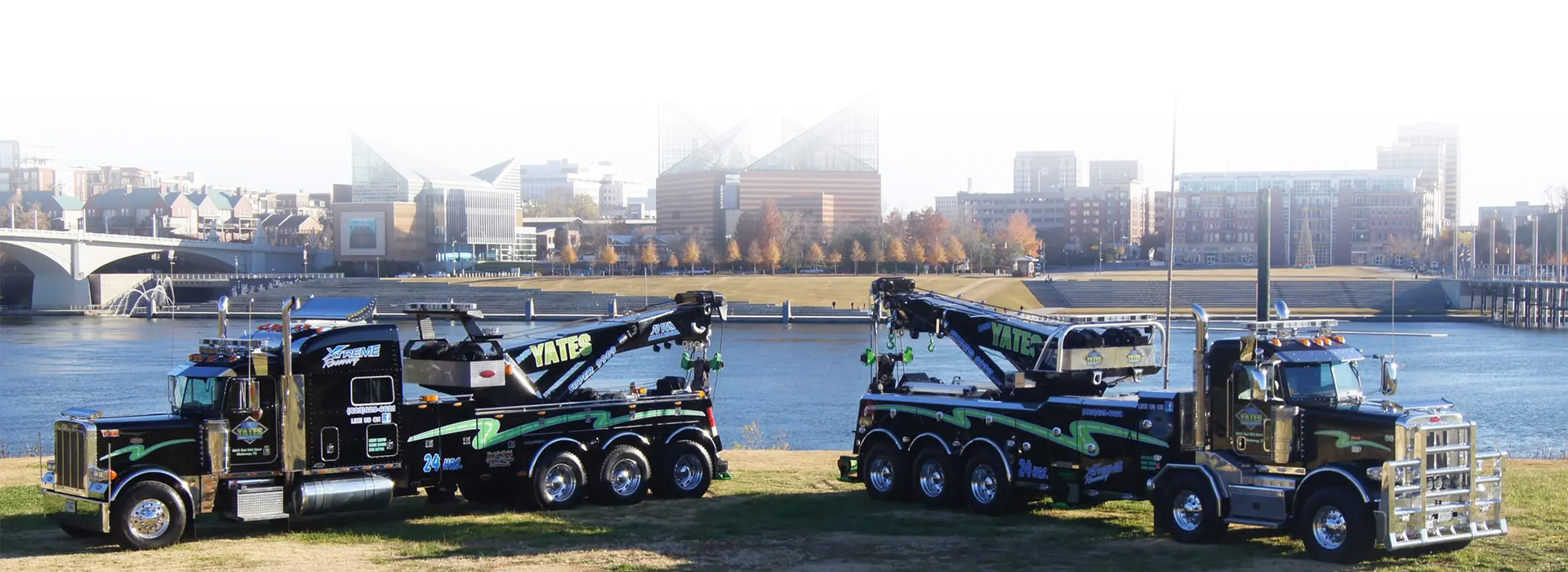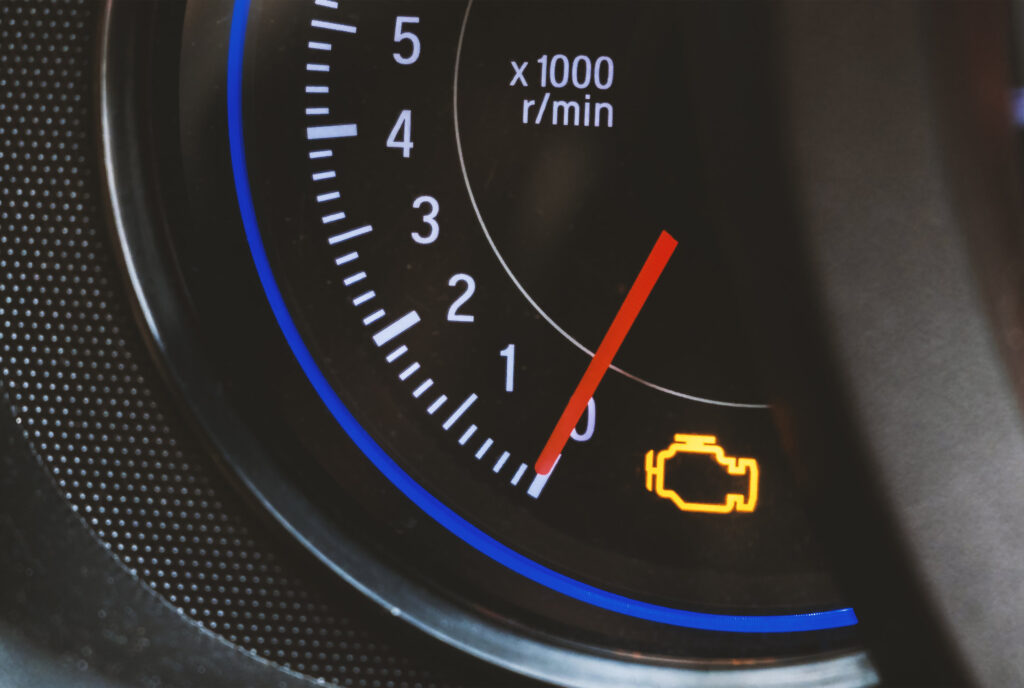If the check engine light is on, this means that your vehicle’s computer has picked up a fault in the emissions or powertrain system. If you ignore this light, the problem can become dangerous, costly, and even lead to an emergency. The problem could be as minor as an incorrect air-fuel ratio causing the catalyst to overheat and turn the light on. Still, it could be something more serious like a bad catalytic converter or leaking EGR valve. Here, Doug Yates Towing & Recovery discusses your check engine light and reasons why it comes on.
What Is The Check Engine Light?
Onboard diagnostics (or OBD II) identifies that there has been a malfunction in the car’s fuel, ignition, emissions, or exhaust systems when the check engine light is illuminated. There may be something as simple as a loose gas cap or something as serious as a faulty catalytic converter, so you should not ignore it. Onboard diagnostics are available on all cars and light trucks to detect engine-related problems that can affect the emission control system.
A check engine light (CEL) is a feature of your vehicle’s onboard diagnostic system (OBD). Over the past few decades, computers have increasingly controlled and monitored vehicle performance, adjusting such variables as engine speed (RPM), fuel mixture, and ignition timing, and alerting the driver of maintenance needs via an onboard dashboard warning light. This light indicates that there is a problem with the self-regulatory functions; the OBD system is malfunctioning.
The OBD system accomplishes this by constantly monitoring all of your car’s critical functions and confirming that they’re operating within set parameters. If a problem occurs in one of these functions, the OBD system records an error code in its memory, and the code can be retrieved using an electronic scan tool.
Reasons The Check Engine Light Is On
Here’s a list of common causes of the check engine light and what you should do about it:
Loose Gas Cap
If the gas cap is loose, the fuel system will not maintain the correct amount of pressure in the tank. The fuel system operates under high pressure and needs an adequately sealed gas cap to keep it working safely and efficiently. This is one of the most common causes of a check engine light.
Catalytic Converter Issues
The catalytic converter helps reduce air pollution by converting harmful substances in exhaust gases into less harmful substances before they get released into the atmosphere.
Oxygen Sensor
The oxygen sensor measures how much oxygen is in your vehicle’s exhaust system. The onboard computer signals a warning through the check engine light if this fails—cost: $100-$200 depending on the make and model of your vehicle.
Spark plugs
Spark plugs ignite fuel in your vehicle’s cylinders to power your vehicle. If they foul or wear out, they can cause all sorts of problems with starting and smooth operation that may trigger the check engine light. Cost: $50-$60 for replacement spark plugs.
Catalytic Converter
The catalytic converter reduces emissions from the tailpipe. Still, if it is starting to fail, it can allow raw fuel into the exhaust system and damage other components like oxygen sensors and spark plugs.
Engine Air Filter
The air filter is dirty or clogged, so the engine runs rich in fuel. A dirty air filter allows too much air into the combustion chamber
Ignition Coils
Ignition coils are faulty. The ignition coil turns the battery’s low voltage into thousands of volts to activate the spark plugs and start combustion in the engine’s cylinders. If one of these coils goes bad, the check engine light will likely come on.
Evaporation Control System
The evaporation control system malfunctioned. When you fill-up your gas tank, the evaporation control system stores fuel vapors until they can be burned off in the combustion process. These vapors can escape through a leak or stuck purge valve.
Solid Versus Flashing Lights
Flashing Check Engine Light
Stop driving your car immediately if your check engine light is flashing, and have it towed to your nearest mechanic by calling for roadside assistance – you probably have a serious problem with your vehicle, and you risk damaging your engine by continuing to drive it.
Solid Check Engine Light
A solid light will typically require more diagnostics than an immediate repair. It may be related to an issue with the emissions system or something simpler like a loose gas cap. Either way, you’ll want to get it checked out by a mechanic and get a professional opinion on the cause of the light being illuminated.
Driving With The Check Engine Light On
If you ignore the light and continue driving without getting it checked out, you could cause damage to your vehicle and void your warranty. If you’re driving when your check engine light goes on, call for a tow instead of risking further damage by driving home.
Although many drivers believe the light means a significant problem with their vehicle, this isn’t always the case. The problem may be something as simple as a loose gas cap. However, when the problem is more severe, such as misfiring spark plugs or low oil pressure, you’ll want to get it checked right away before it gets worse.
The final step is to read the code by a mechanic or expert. You do not want to drive off with a warning light in your car, no matter how minor it may appear. It only takes one emission component, failing to turn the entire system into a useless hunk of metal and plastic. Getting the code reader can give you some information about what is causing the warning light to come on, and this will allow you to get it fixed before something serious happens down the line. If the situation is urgent, it would be best to call a towing service rather than continue to drive.
Conclusion
If your car’s dashboard displays the Check Engine Light after it has remained illuminated for a while, don’t freak out and rush to a mechanic right away. There is still a chance you will be able to drive your car for a bit, but it is best to have your car repaired as soon as possible.
In addition to a loose gas cap or a broken/missing light bulb, the Check Engine Light can also be triggered by a number of other things. It is always recommended that you have your car checked by a professional in order to determine whether it can be safely driven or whether you should call a towing company such as Doug Yates Towing & Recovery Company in Chattanooga, TN.

